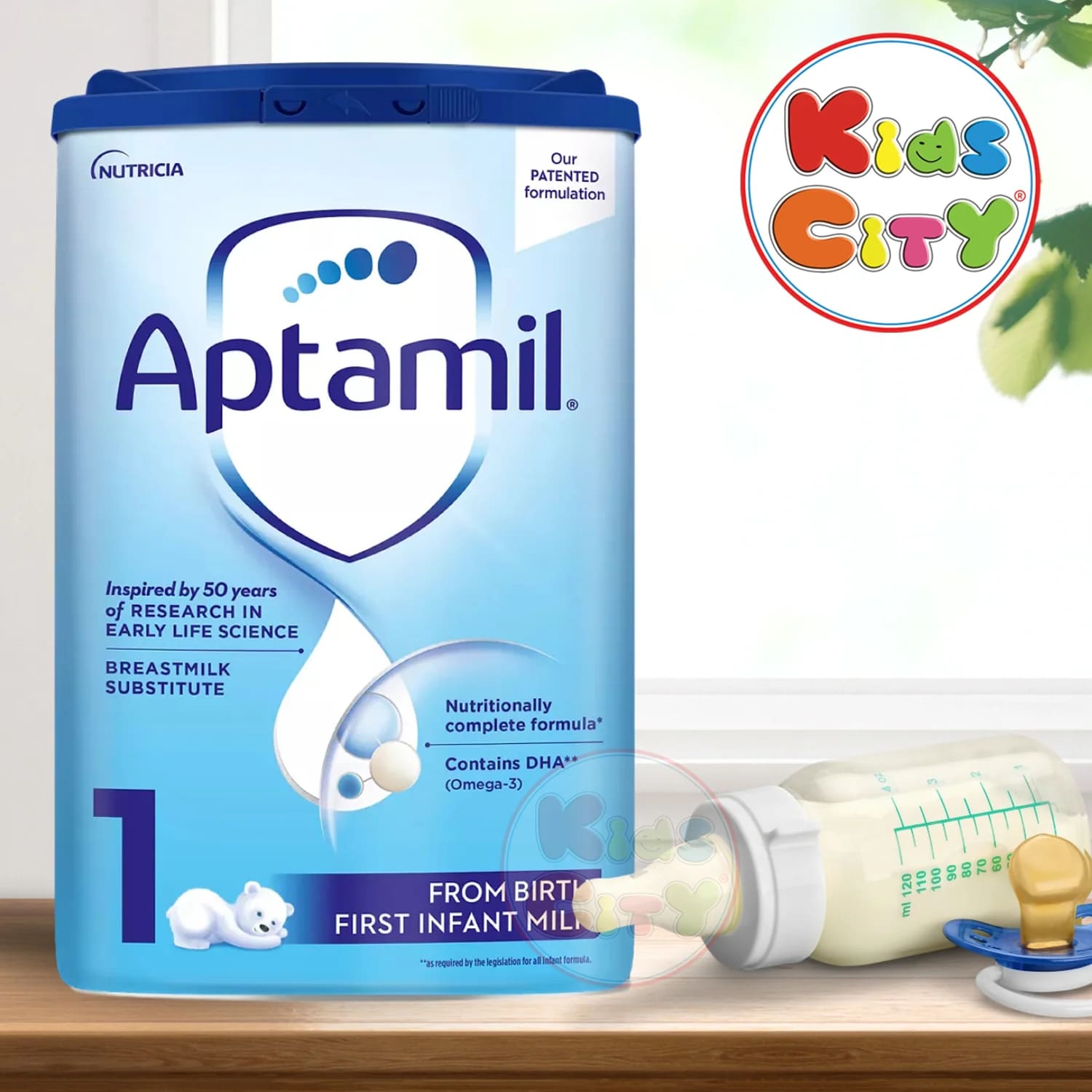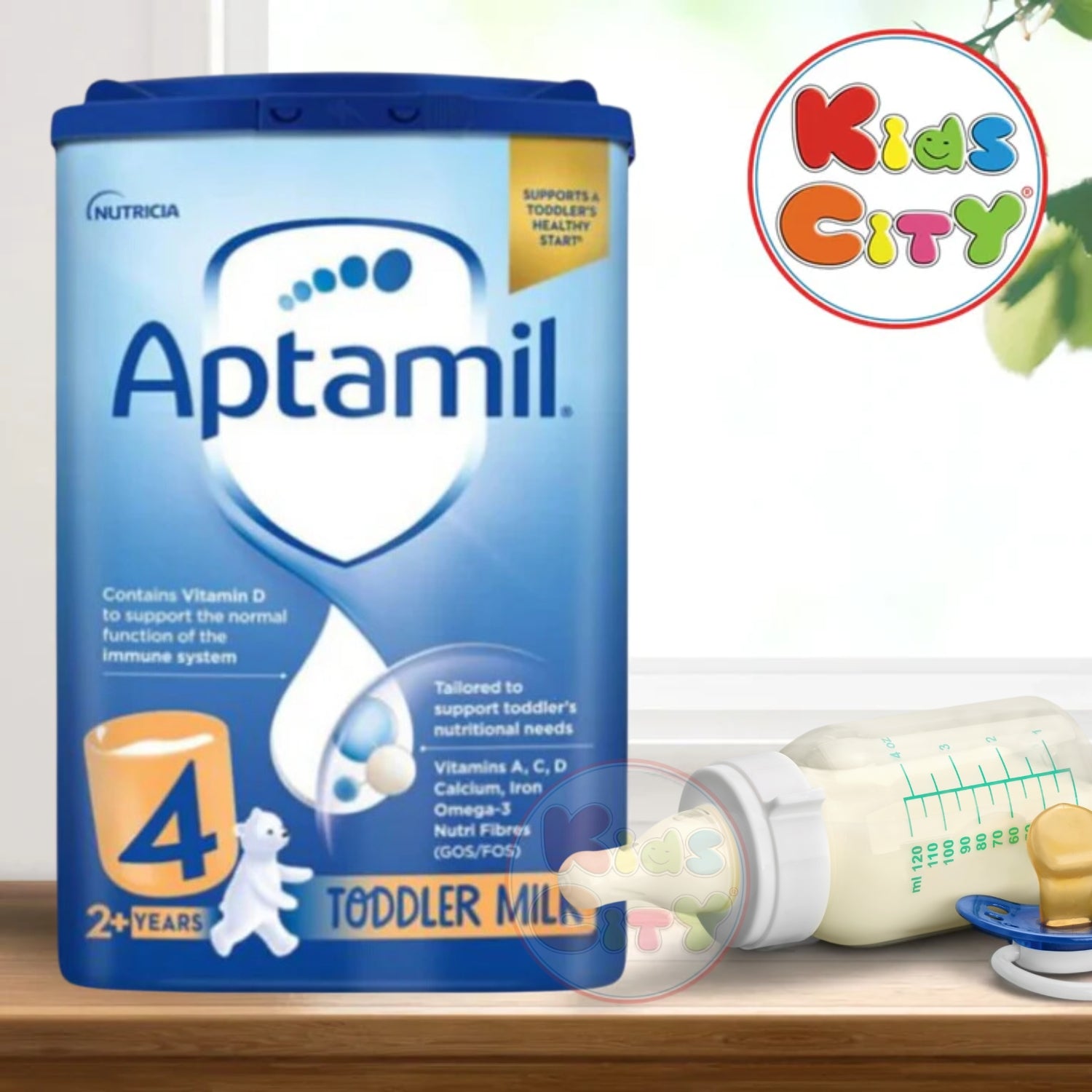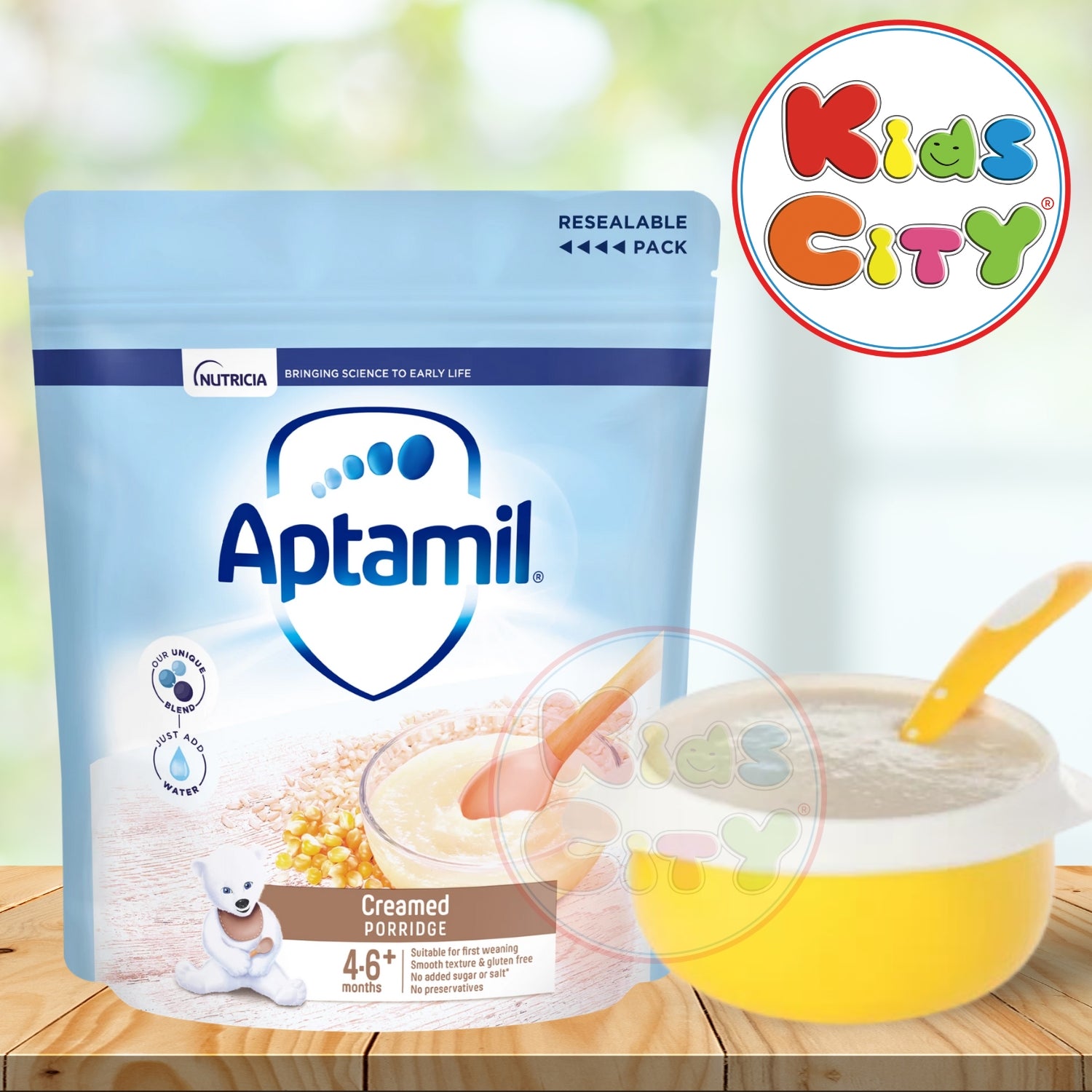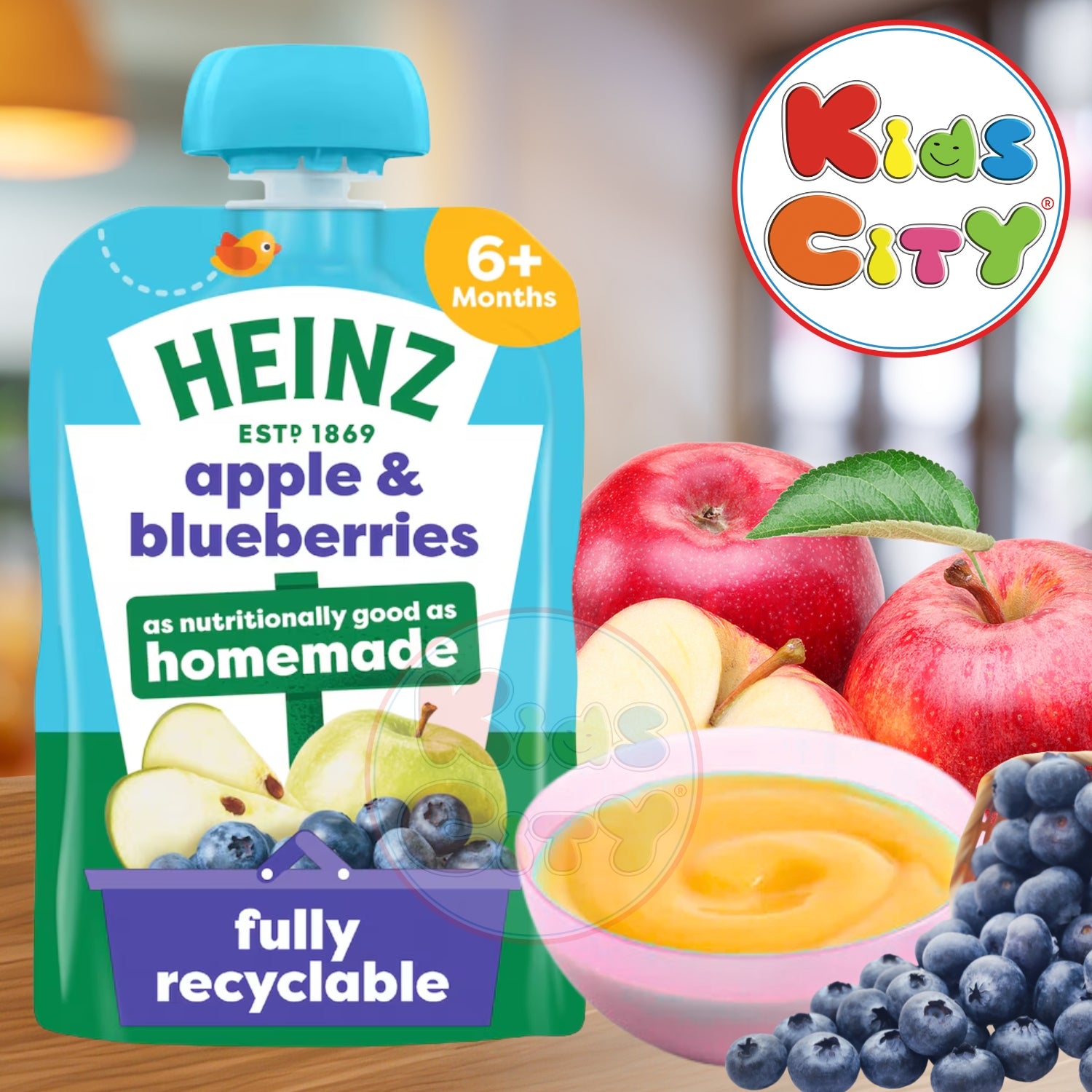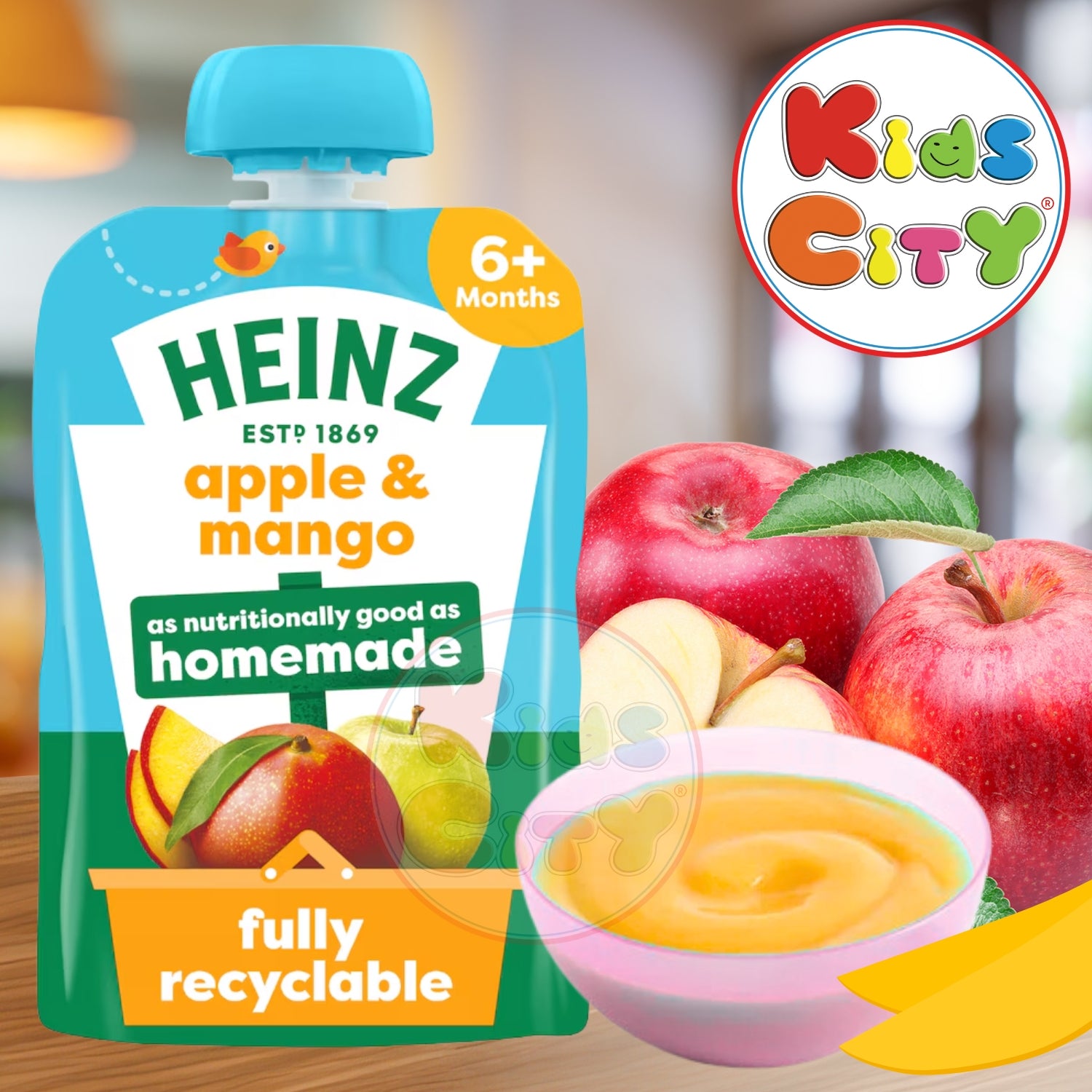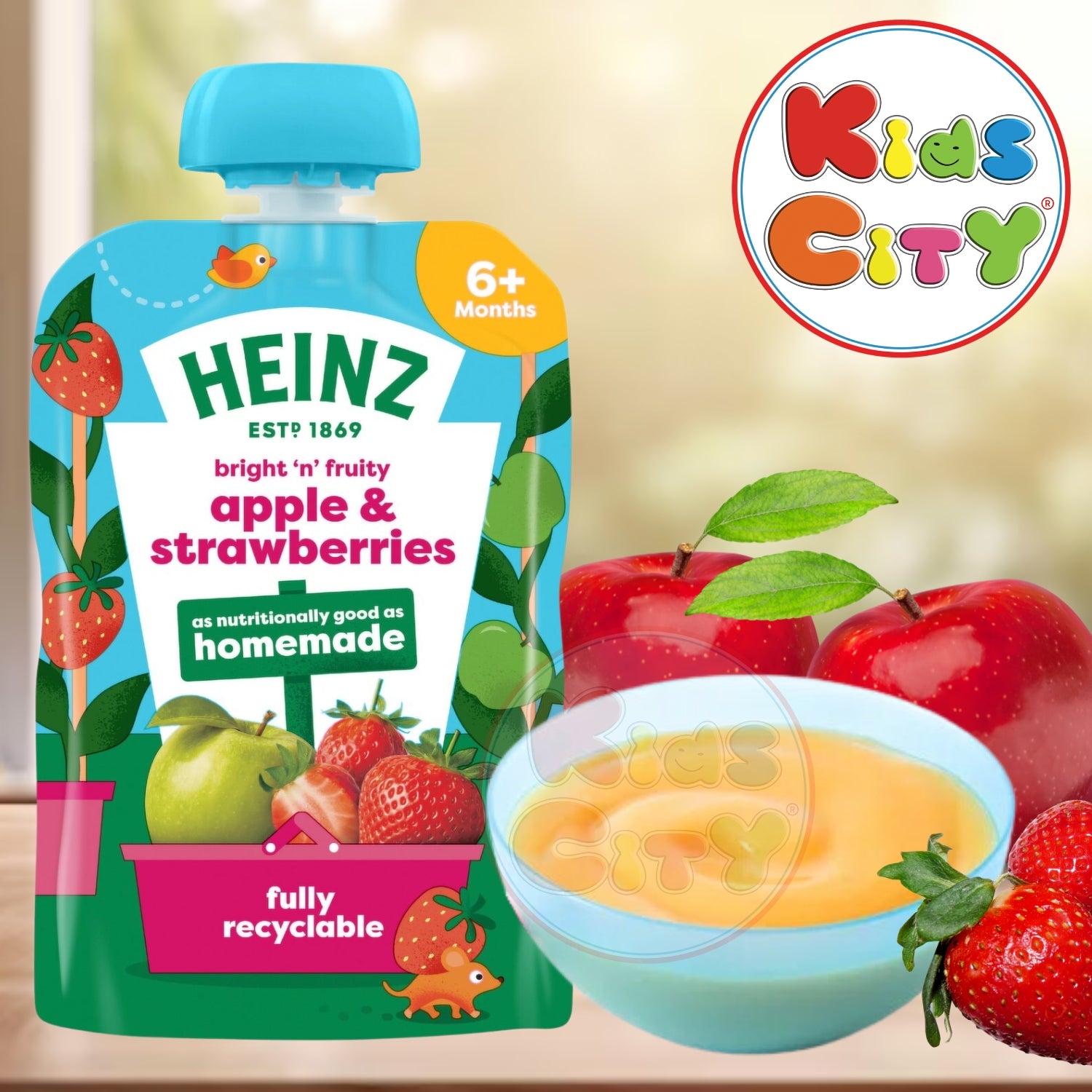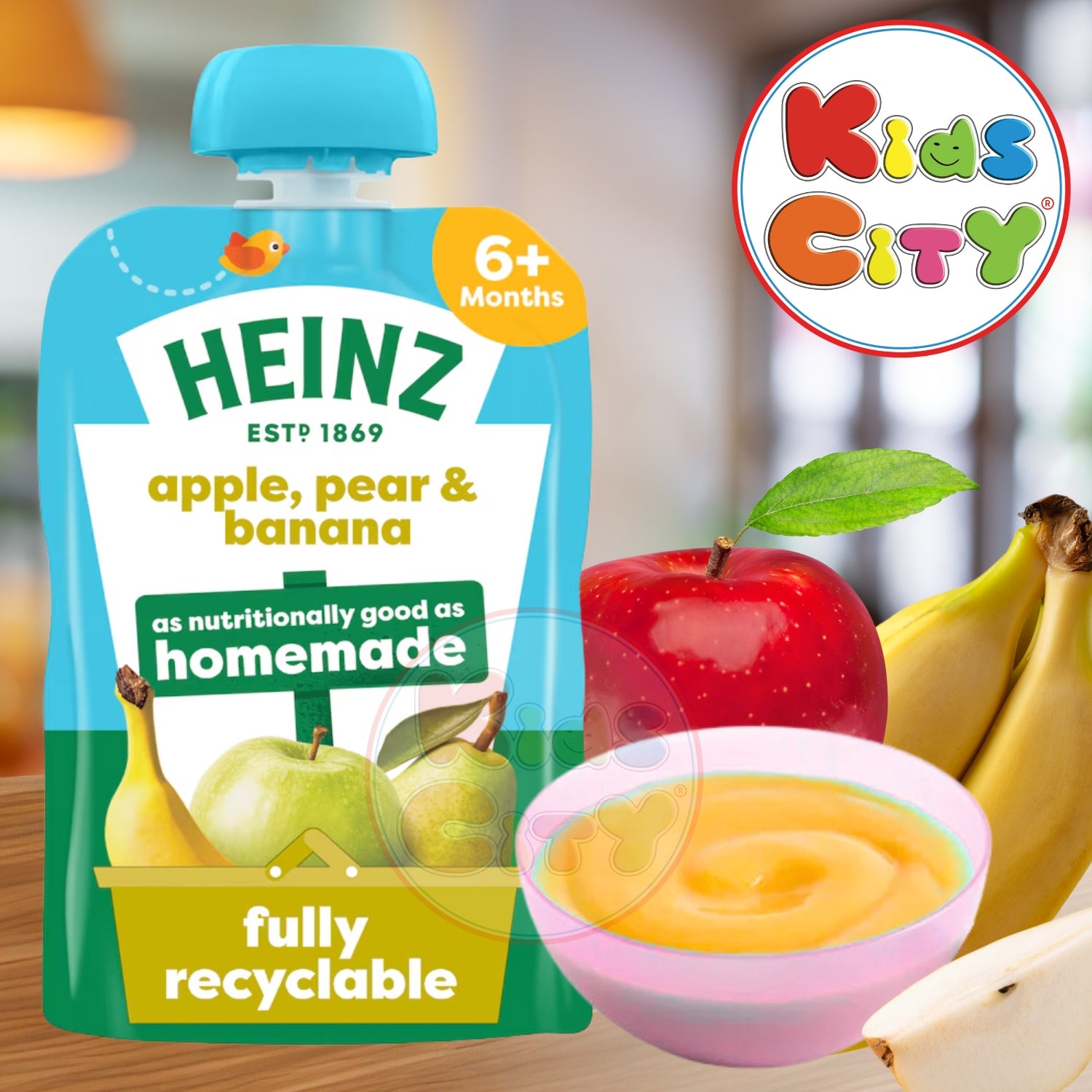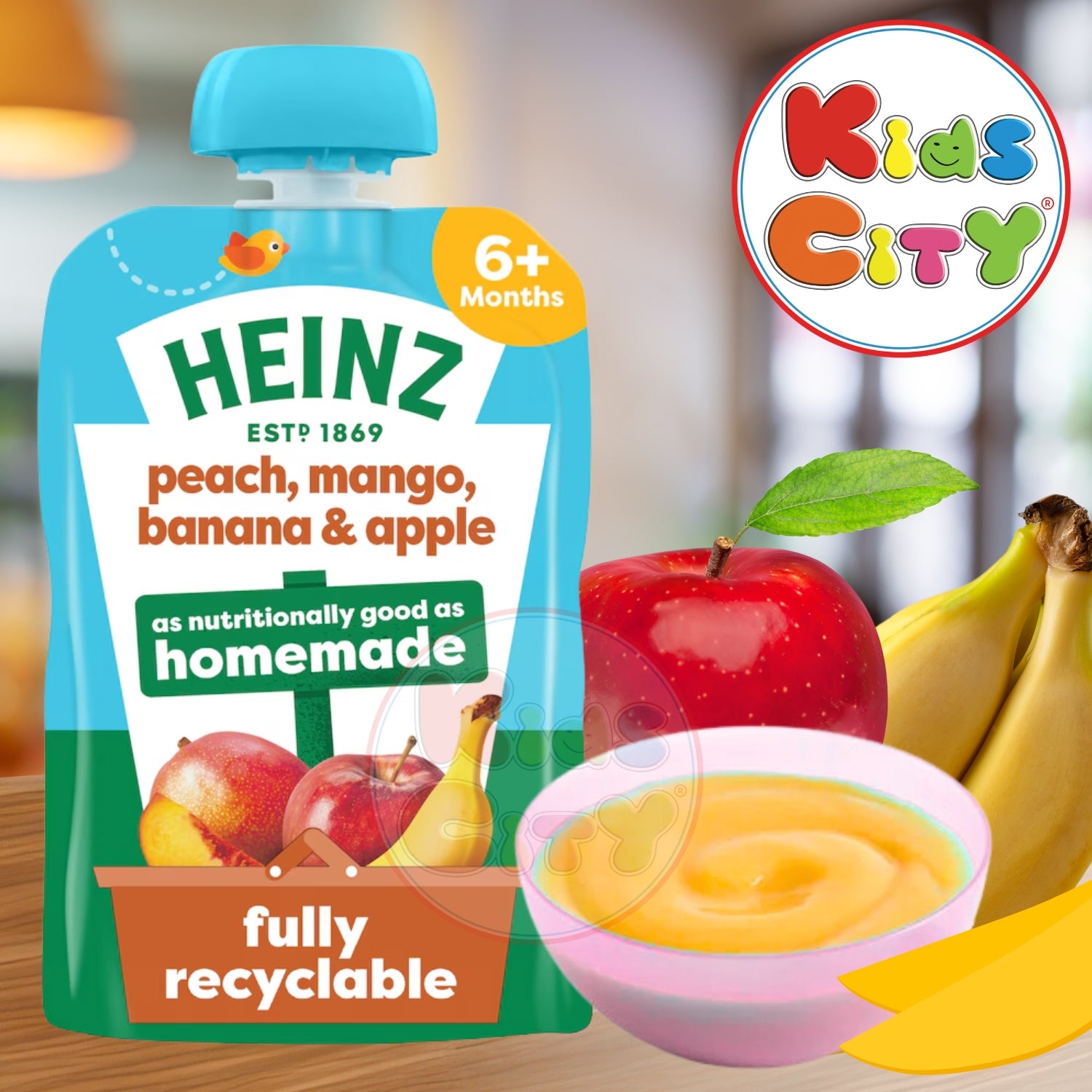-
Baby Foods
- Milk Formulas
- Baby Cereals
- Baby Snacks
- Baby Purees
- Bath & Skin Care
-
Brands
- Aptamil
- Cow & Gate
- Ella's Kitchen
- Enfamil
- Enfagrow
- Gerber
- Heinz
- Hipp Organic
- Kendamil
- Kiddylicious
- Nestle
- Nannycare
- Organic Mamia
- Organix
- Pediasure
- Similac
- SMA
- Aquafresh
- A+D
- ASDA
- Aveeno
- Banana Boat
- Bonjela
- Colgate
- CeraVe
- Crest
- Desitin
- FireFly
- H&A
- Hansaplast
- Heal
- Johnsons
- Jordan
- Kobayashi
- Lansinoh
- Loreal
- Mahahing
- Oral-B
- Sensodyne
- Suave Kids
- Sudocrem
- Tesco
- Tiger Balm
- Vaseline
- Wells
- SALE
Your cart is empty
Looks like you haven't added anything to your cart yet

Best Baby Milk Formula for Babies 0-6 Months
Choosing the right milk formula for your baby during their first six months is a big decision. Babies need proper nutrition to help them grow and develop in a healthy way. While breastfeeding is often considered the best choice, some parents may need or want to use baby formula. Whether it’s because of medical reasons, convenience, or personal choice, finding the best baby milk formula is important for your little one’s growth.
Why Parents Choose Baby Milk Formula
There are several reasons why parents may choose formula feeding over breastfeeding, or a mix of both. Here are a few common reasons:
-
Medical Conditions: Some mothers are unable to breastfeed due to health problems or medications that can affect the quality of their breast milk. In such cases, baby formula provides a safe and healthy alternative.
-
Low Milk Supply: Not all mothers produce enough milk to fully feed their babies. Some parents supplement with formula to ensure their baby gets the nutrition they need.
-
Convenience: Formula feeding can be more flexible, especially if other family members want to help with feeding. It also allows parents to track exactly how much their baby is eating.
-
Personal Choice: Some families prefer using formula for personal reasons. Formula feeding offers the ability to feed the baby without needing to breastfeed.
Cost Comparison: Top Baby Milk Formula Brands (0–6 Months)
|
Formula Name |
Pack Size |
Price (INR) |
Price per 100g |
Best For |
|
Aptamil 1 First Infant Milk (0m+) |
800g |
₹3,600 |
₹450 |
Budget-conscious parents, balanced nutrition |
|
Aptamil Anti Reflux |
800g (est.) |
₹3,600 (approx) |
₹450 (approx) |
Babies with reflux, digestion support |
|
Similac Advanced Gold Stage 1 |
400g |
₹3,150 |
₹787.5 |
Gentle on tummy, boosts immunity |
|
Hipp Comfort Milk Combiotic |
800g |
₹5,675 |
₹709.38 |
Colic & constipation relief, organic choice |
|
Enfamil Neuro Pro Infant Formula |
587g |
₹6,300 |
₹1,073.25 |
Premium brain nutrition, DHA + MFGM blend |
Helpful Tip for Parents
-
💰 Budget-conscious?
Aptamil 1 First Infant Milk is a cost-effective option that still provides balanced nutrition and essential nutrients. -
🤰 Digestive issues?
Aptamil Anti Reflux and Hipp Comfort Milk are great choices for babies struggling with reflux, gas, or colic. -
🧠 Premium nutrition?
Enfamil Neuro Pro offers high-end brain-building benefits with ingredients like DHA and MFGM, ideal for developmental support.
Different Types of Baby Milk Formula for 0-6 Months
There are several types of baby formula on the market. Understanding these options can help you choose the best one for your baby.
-
Cow’s Milk-Based Formula: This is the most common type of baby formula. It is made from cow’s milk that has been modified to be easier for babies to digest. The proteins in cow’s milk are altered to make them gentler on a baby’s stomach. Most healthy, full-term babies can tolerate cow’s milk-based formulas.
-
Soy-Based Formula: Soy-based formula is made from soybeans and is a good choice for babies who are allergic to cow’s milk or who have lactose intolerance. It’s also a popular option for families that prefer plant-based products. However, it’s important to check with your pediatrician before switching to a soy-based formula.
-
Lactose-Free Formula: Some babies are born with lactose intolerance, meaning their bodies can’t properly digest lactose, the natural sugar found in milk. Lactose-free formulas are specially designed for these babies. They provide all the essential nutrients without the lactose.
-
Hydrolyzed Formula: Hydrolyzed formulas are designed for babies who have trouble digesting regular formula. The proteins in this formula are broken down into smaller parts, making them easier to digest. These formulas are often recommended for babies with allergies or sensitive stomachs.
-
Specialized Formulas: There are also formulas made for babies with specific health needs, such as premature babies or those with certain medical conditions. These formulas often contain extra nutrients or ingredients that help support the baby’s unique needs.
What to Look for in a Baby Milk Formula
Choosing the right baby formula involves more than just picking a brand off the shelf. Here are some key factors to consider:
-
Nutritional Content: Look for formulas that provide a balance of proteins, fats, carbohydrates, vitamins, and minerals. These nutrients are essential for your baby’s growth and brain development. DHA and ARA, two important fatty acids found in breast milk, are often added to formulas to support brain and eye health.
-
Ease of Digestion: Babies have delicate digestive systems, especially during the first six months. Choose a formula that is easy on their stomach. Some formulas are specially designed to reduce gas, colic, or fussiness.
-
No Added Sugars or Chemicals: Avoid formulas that have added sugars, artificial flavors, or harmful chemicals. Choose a formula that is as natural as possible to keep your baby healthy and happy.
-
Doctor’s Recommendation: Always consult with your pediatrician before deciding on a formula, especially if your baby has allergies or medical conditions. Your doctor can help you pick the best formula based on your baby’s individual needs.
Mom Story 1: Priya from Delhi – Found Comfort with Aptamil Anti Reflux
"My baby girl used to cry a lot after every feed. I was worried and tired, thinking I was doing something wrong. Our pediatrician suggested trying Aptamil Anti Reflux. Within a few days, she was more comfortable, had less spit-up, and started sleeping better. I was finally able to relax. I still breastfeed, but this formula really helped during night feeds when my supply was low. It’s been a game-changer for us!"
— Priya M., Delhi
Mom Story 2: Anjali from Bangalore – Enfamil Neuro Pro Worth the Price
"I was looking for a formula that gave my son the best nutrition possible, especially for brain development. A friend recommended Enfamil Neuro Pro. Yes, it’s a bit more expensive, but I noticed my son was more alert and active after starting it. His weight gain was healthy, and he had no tummy issues. I feel good knowing I’m giving him strong support in his early months. I highly recommend it to other moms who can stretch their budget."
— Anjali R., Bangalore
Top Baby Milk Formula Brands for 0-6 Months
There are many baby formulas available, but here are some of the best and most trusted options for babies aged 0-6 months:
- Aptamil 1 First Infant Milk: Aptamil 1 First Infant Milk is designed to provide essential nutrients for newborns up to six months old. It contains a unique blend of vitamins, minerals, and prebiotics to support your baby's growth and development during their early months.

- Aptamil Anti Reflux: For babies struggling with reflux or digestive issues, Aptamil Anti Reflux formula milk provides relief. Specially thickened to reduce reflux, it contains nutrients to support healthy growth and digestion, ensuring your baby stays comfortable and nourished.

- Similac Advance Stage 1 Infant Formula: Similac Advance Stage 1 is another popular choice for newborns, offering a unique blend of prebiotics, nucleotides, and antioxidants to support your baby's immune system and digestive health.

- Hipp Comfort Milk: Hipp Comfort Milk is an organic formula that helps manage colic and constipation. It contains prebiotics and probiotics that support digestive health. Prebiotics and probiotics help maintain a healthy balance of bacteria in the gut.

- Enfamil Neuro Pro: Enfamil Neuro Pro is designed to provide brain-building nutrition while being gentle on a baby’s tummy. It contains MFGM (Milk Fat Globule Membrane) and DHA (Docosahexaenoic Acid), which are essential for brain development.

How to Know if a Formula is Right for Your Baby
After choosing a baby formula, it’s important to watch how your baby responds to it. Here are some signs that the formula is working well for your baby:
- Steady Weight Gain: Your baby should gain weight at a healthy rate, as monitored by your pediatrician.
- No Major Digestive Issues: Your baby should have regular bowel movements without excessive gas, colic, or spit-up.
- Content and Happy: A well-fed baby will generally be content, alert, and happy after feeding.
If you notice any problems like frequent vomiting, diarrhea, rashes, or if your baby seems fussy after feeding, talk to your doctor. It might be necessary to switch to a different type of formula.
Finding the best baby milk formula for your baby’s first six months is an important decision. With many options available, it’s essential to choose one that fits your baby’s nutritional needs, is easy to digest, and is recommended by your doctor. Whether you choose a cow’s milk-based formula, soy-based formula, or a specialized option, ensuring that your baby receives proper nutrition will help them grow strong and healthy. Always consult your pediatrician if you have any concerns, and enjoy this special time with your little one!
FAQ Best Formula Milk For Babies 0 to 6 Months Old
1. Which milk powder is best for baby 0–6 months?
The best milk powder for babies 0–6 months depends on your baby's needs. Some top choices include Aptamil 1 First Infant Milk for balanced nutrition and Enfamil Neuro Pro for brain development. If your baby has tummy troubles, Hipp Comfort Milk or Aptamil Anti Reflux may help with digestion.
2. Best formula milk for baby 0–6 months to gain weight?
If you want a formula that supports healthy weight gain, Enfamil Neuro Pro is a great choice. It contains DHA and MFGM to help with brain growth and steady weight gain. Similac Advance Stage 1 is also known for helping babies gain weight while being gentle on the stomach.
3. How much formula milk for baby 0 to 6 months?
The amount of formula milk a baby needs depends on their age and weight. On average:
A newborn may need 60–90 ml per feed, 6–8 times a day.
By 3–6 months, babies often drink 120–180 ml per feed.
Always follow the formula package instructions and your pediatrician’s advice to meet your baby's specific needs.
4. Which is the best organic formula milk for baby 0–6 months?
Hipp Comfort Milk is one of the best organic formula options for babies 0–6 months. It contains natural ingredients and is gentle on sensitive tummies. It also includes probiotics and prebiotics to help with digestion and reduce colic.
5. Affordable formula milk for baby 0–6 months in India?
Aptamil 1 First Infant Milk is one of the most affordable baby formulas in India, offering good nutrition at a reasonable price. At around ₹450 per 100g, it provides essential nutrients for growth and development.
It’s a great budget-friendly option for parents who still want quality.
6. What is the best milk formula for digestion for babies aged 0–6 months?
If your baby has digestion problems like gas or reflux, Aptamil Anti Reflux or Hipp Comfort Milk are top choices. These formulas are specially designed to be easier to digest and can help with colic, spit-up, and constipation.
- Choosing a selection results in a full page refresh.

